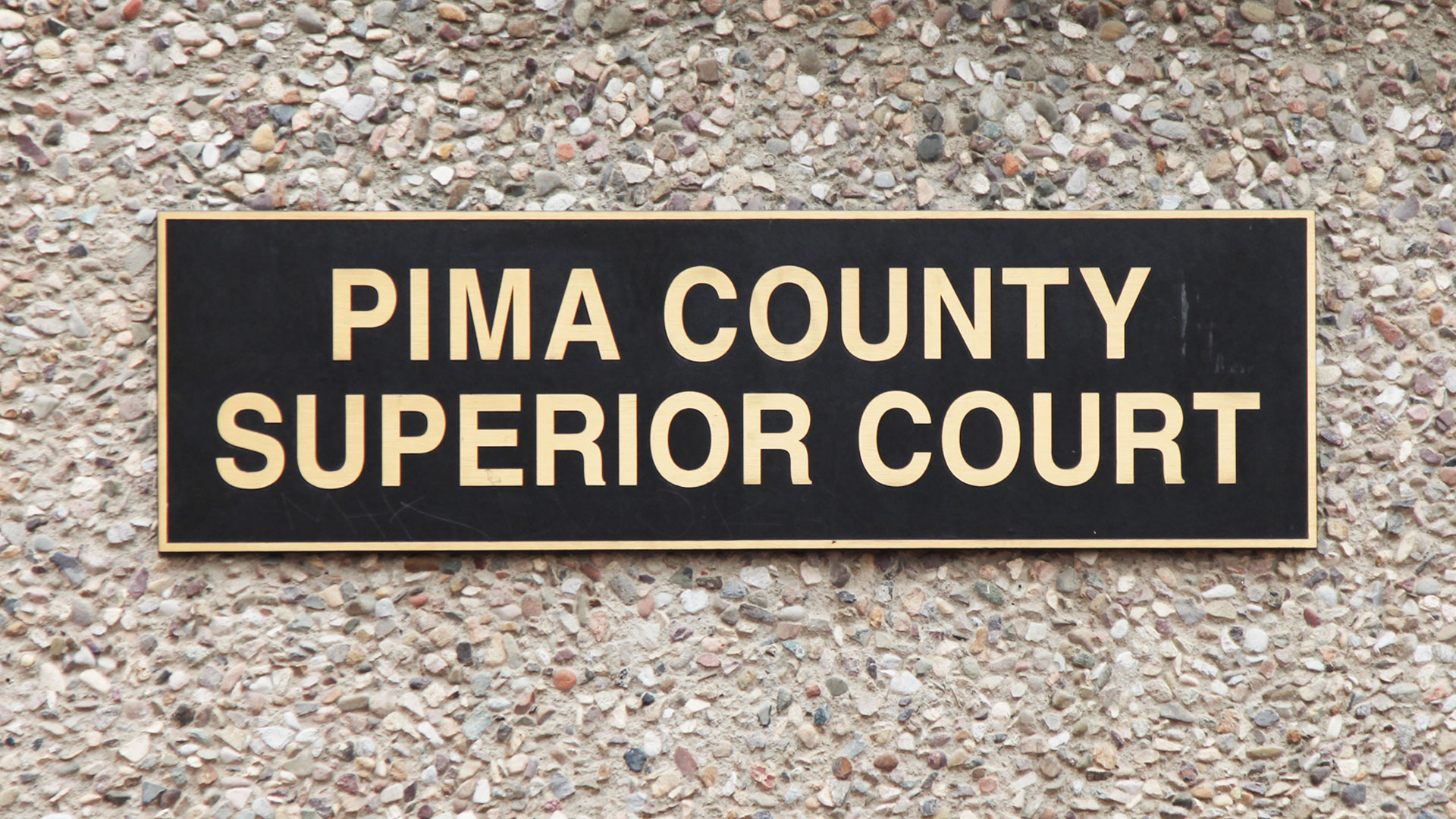 Pima County Superior Court Sign
Pima County Superior Court Sign
The family of slain University of Arizona professor Thomas Meixner held hands as closing arguments for the trial of Murad Dervish wrapped up Monday afternoon.
Dervish is being charged with seven felony counts including the first-degree murder of Meixner. In October 2022, Dervish shot and killed Meixner in his office at the Harshbarger building at UA. Dervish’s other charges include aggravated assault with a deadly weapon, three counts of endangerment, first-degree burglary, and misconduct involving weapons.
The prosecution asserted that Meixner’s murder was premeditated and that Dervish was aware of the wrongfulness of his crimes. Pima County Prosecuting attorney Mark Hotchkiss detailed emails, audio recordings, body camera footage and texts that show that the former graduate student planned for Meixner’s murder.
“Couple bucks doesn't really f****** matter at all since I'm just going to use it to kill several people, and then myself,” one text read when Dervish was looking to purchase a gun.
“If this does not amount to premeditated murder, what does?” Hotchkiss told the jury.
However, Dervish’s defense says that is not the case.
“Murad dervish lost his mind on Oct. 5, 2022,” public defender Leo Masursky said.
Instead, his counsel is arguing that Dervish should be found guilty except insane to second-degree murder, three counts of endangerment, and aggravated assault.
“That’s accountability related to what he did,” Masursky said trying to convince the jury to follow suit with a guilty except insane sentence.
During the trial, the defense’s psychologist diagnosed Dervish with autism and schizoaffective disorder. In Masursky’s closing arguments, he detailed different moments in Dervish’s life that showed he had a severe mental illness, like when Dervish’s mother said that he was 10 years old when he pulled a knife against his babysitter.
But, Hotchkiss maintained that Dervish was fully aware of his actions using instances like when Dervish said he “fulfilled his mission” as examples.
“There's only one verdict that is supported by the evidence, and that's to hold this man accountable for the horrific murder of Thomas Meixner and find him guilty as charged,” Hotchkiss said.
Dervish emptied the clip of a 9 mm handgun after shooting 11 times at Meixner. Nine of those 11 bullets hit the professor. Following the shooting, Dervish attempted to flee the state of Arizona. During the trial, a recording of a psych evaluation showed that Dervish said “There’s a lot of evidence against me” and “Is there a death penalty in Arizona?” When psychologist Dr. James Sullivan asked him if this was because Dervish was “aware of the fact that (he) broke the law”, Dervish said yes.
According to Hotchkiss’s closing arguments, Dervish planned the shooting on the Jewish holiday of Yom Kippur–a day of atonement–so that Meixner would atone for his sins. Dervish, in a recording, admitted that he was looking for revenge after believing Meixner, along with others, was conspiring against him. Dervish incorrectly believed Meixner was Jewish.
Halfway through the nine-day trial, Dervish attempted to ask a new defense counsel, become co-counsel, and a mistrial saying he was dissatisfied with how the trial had gone. Judge Howard Fell denied his requests.
The jury will begin deliberations Tuesday morning. There was no indication as to when a verdict may be made.

By submitting your comments, you hereby give AZPM the right to post your comments and potentially use them in any other form of media operated by this institution.